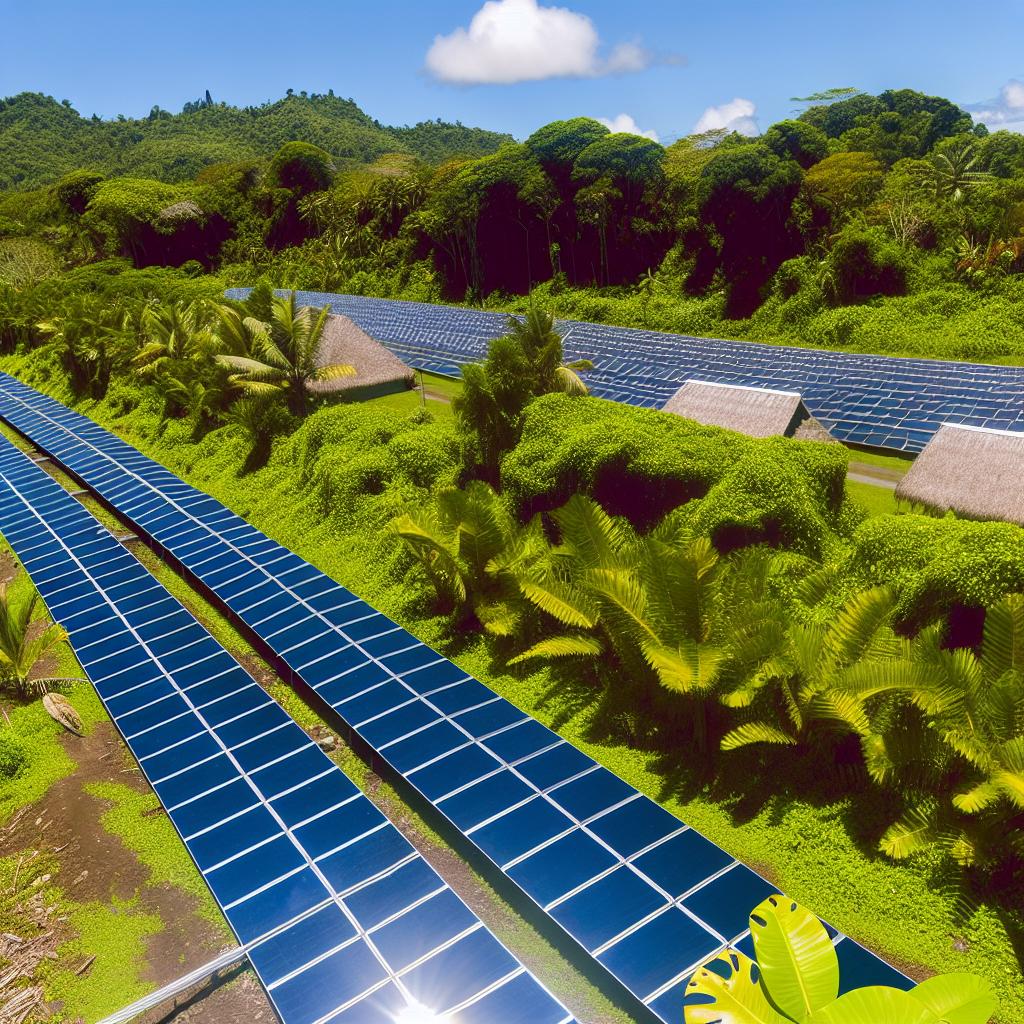Fiji's Solar Energy Landscape: Growth & Challenges
Press play below to listen to this blog:

Explore the dynamic evolution of solar energy in Fiji, from burgeoning projects to the hurdles faced in harnessing the sun's power.
The Rise of Solar Power in Fiji's Renewable Energy Mix
Fiji has been making strides in embracing renewable energy sources, with solar power emerging as a key player. The country's abundant sunlight and increasing environmental awareness have led to the installation of solar panels across the nation. This shift is largely driven by the government's commitment to reduce carbon emissions and the need for a more sustainable and independent energy supply.
The adoption of solar technology has been further accelerated by the decreasing cost of solar panels, making it a more viable option for both public and private sectors. The integration of solar power into Fiji's energy mix is not only contributing to a greener environment but also aiding in the reduction of energy costs for its citizens.
Government Initiatives and International Support for Solar Expansion
The Fijian government has launched various initiatives to promote the use of solar energy, including subsidies and tax incentives for solar equipment. In addition, international aid and partnerships have played a significant role in financing and providing technical expertise for solar projects. Organizations such as the World Bank and the Asian Development Bank have been instrumental in funding renewable energy programs in Fiji, thus enhancing the country's capacity to harness solar power.
These collaborative efforts have not only bolstered Fiji's solar infrastructure but have also created an environment conducive to foreign investment in renewable energy projects. The support has enabled the country to pursue ambitious solar installation targets and has positioned Fiji as a leader in the Pacific region's renewable energy sector.
Overcoming Geographic and Economic Barriers to Solar Adoption
Despite its potential, the widespread adoption of solar energy in Fiji faces geographic and economic challenges. The country's dispersed island geography poses logistical difficulties in deploying solar infrastructure, leading to higher costs and maintenance challenges. Moreover, the initial investment required for solar installations can be a barrier for local communities and small-scale operators.
To address these issues, the government and non-governmental organizations are working to implement innovative solutions such as community-based solar power systems and microgrids. These efforts aim to not only make solar power more accessible but also to ensure that it is economically feasible for the average Fijian household and business.
The Impact of Solar Energy on Fiji's Remote Communities
Solar energy has had a transformative impact on remote and rural communities in Fiji. In areas that are not connected to the national grid, solar installations have provided a reliable and sustainable source of electricity. This has enabled communities to power essential services, such as health centers and schools, and has improved the overall quality of life for residents.
The use of solar power in these remote areas has also reduced the dependency on expensive and polluting diesel generators. As solar technology continues to advance, it offers an opportunity to further bridge the energy divide and empower communities through clean, renewable power.
Future Prospects: Sustainability and Solar Innovation in Fiji
Looking ahead, Fiji's prospects for solar energy are bright. The government's commitment to achieving 100% renewable energy by 2030 sets a clear path for the expansion of solar power. Continued innovation in solar technology and storage solutions is expected to further enhance the feasibility and efficiency of solar projects in Fiji.
Moreover, educational programs and vocational training in solar technology are crucial for building local expertise and fostering a culture of sustainability. By investing in human capital and encouraging local entrepreneurship in the solar industry, Fiji can ensure that the growth of its solar sector is both sustainable and inclusive.


